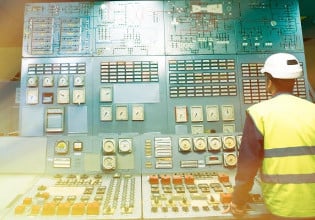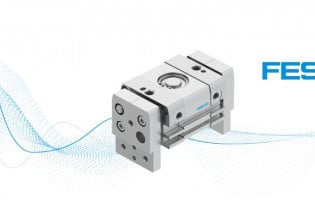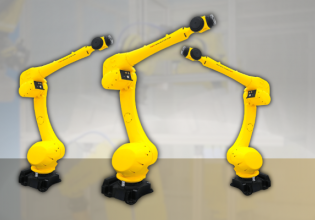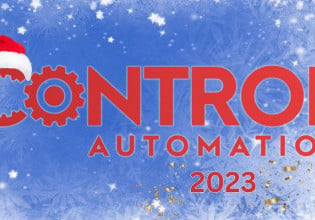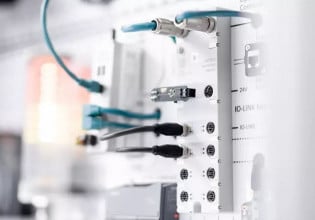Comau to Deliver Automated Robotic System for EV Battery Recycling in EU
Comau plans to test and validate its automated robotic cell for safely dismantling electric vehicle batteries as part of the European Union’s Flexible Battery Dismantling project.
Industrial robot manufacturer Comau has devised a robotized system that automatically dismantles EV batteries as part of the European Union’s (EU) Flexible Battery Dismantling (Flex-BD) project, optimizing the recycling and reuse process. The initiative underlines the EU's commitment to promoting a circular economy and sustainable solutions in the electric mobility (e-mobility) industry, since battery recycling becomes increasingly important as the number of end-of-life batteries increases.
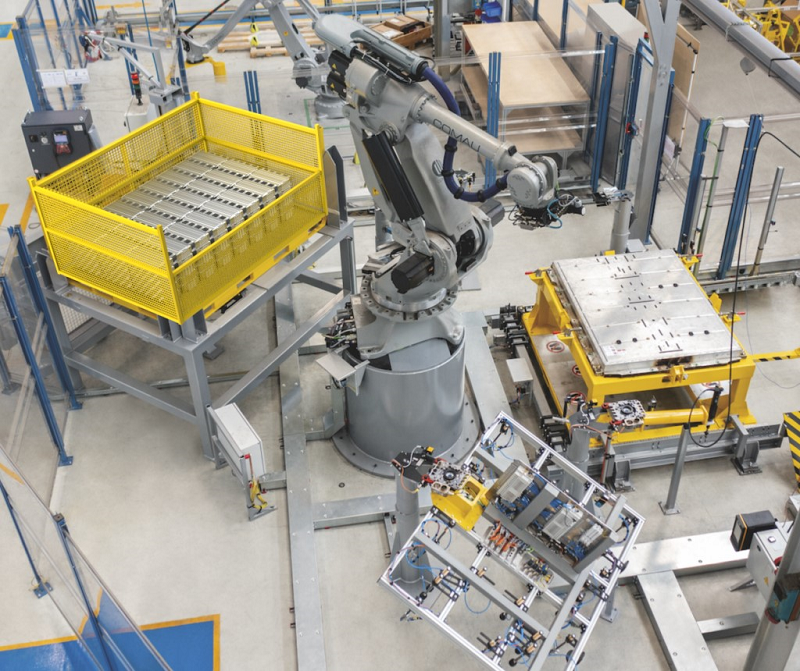
Comau's high-payload NJ industrial robot enables the safe dismantling of end-of-life batteries. Image used courtesy of Comau
EV Battery Recycling Demand
According to McKinsey and Company, end-of-life EV batteries are projected to climb well ahead of production scrap as the main source of battery materials for recycling from 2030 to 2040. Key drivers behind EV battery recycling include technological innovations that improve material recovery rates and grant funding from governing bodies such as the European Battery Alliance and the U.S. National Science Foundation Phase II/Small Business Innovation Research grants.
Companies like Redwood Materials are also striving to secure strong local supply chains for the U.S., resourcing recycled raw materials, reducing transport costs, and promoting localized economic growth.

Recycling battery materials can help lower carbon emissions. Image used courtesy of McKinsey and Company
Recycling battery materials is beneficial for the environment since it reduces carbon emissions by 28% for each kilowatt-hour of battery cell capacity created. The Inflation Reduction Act, which allows battery materials to qualify for considerable tax benefits, is actively pushing the development of local battery recycling.
What is the Flex-BD Project?
The EU Flex-BD project is a key initiative aimed at tackling the issues posed by an increasing number of end-of-life electric vehicle (EV) batteries. As the demand for EVs grows, developing sustainable solutions for battery recycling and disposal becomes increasingly essential.
The Flex-BD project aims to offer new and adaptable methods of dismantling and recycling EV batteries. The project's goal is to increase the safety and effectiveness of battery recycling processes while optimizing resource recovery by developing configurable and scalable dismantling strategies. The Flex-BD initiative demonstrates the EU's proactive commitment to fostering the circular economy and environmentally friendly solutions in the EV industry.
A circular economy for EV battery recycling includes a resource-efficient system that reuses, recycles, and repurposes EV batteries. It serves to reduce waste, preserve resources, and develop a sustainable battery management cycle.
How Does Flex-BD Work?
As part of the Flex-BD project and its continued commitment to improving sustainability in the e-mobility space, Comau has developed a robotized system for dismantling end-of-life electric batteries. Following proof-of-concept validation, the company has extended its work to accommodate the recycling and reuse of EV batteries.

Batteries are an extremely resource-intensive component of EV manufacturing, so the efficient reuse of components is imperative. Image used courtesy of Adobe Stock
Battery packs are placed within a cell containing Comau's high-payload NJ industrial robot. The bot works autonomously, altering its end-effectors depending on the application being used. The bot removes the battery cover, switches grippers to take off the cover, reattaches a screwdriver to remove the modules, and finally transfers the components to a storage space using its gripper.
Flex-BD is built around a versatile programming method based on fewer codes, advanced environmental sensing techniques, and the robot's reactive capabilities; the full dismantle cycle is described using computer-aided design. 'Low code' programming also enables operators to reconfigure the cycle rapidly without having to reprogram the bot.
Comau’s cell provides a safer environment for operators by automating the handling of low-charge second-life batteries.
A New Life for End-of-Life Batteries
The emergence of end-of-life EV batteries as a key supply of battery materials for recycling is pushing the demand for long-term solutions. Initiatives such as the Flex-BD project are pushing for the development of safer and more effective techniques of disassembly and recycling. The integration of Comau's robotized system underlines the company's commitment to sustainability in the e-mobility industry by providing a modular and automated solution for handling end-of-life batteries.

